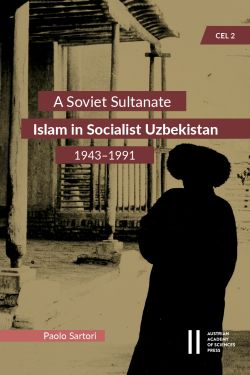

“A Soviet Sultanate” is the first English-language social history of Islam in Soviet Central Asia after WWII, and it focuses on a key question: what did it mean to be a Muslim in Socialist Uzbekistan? The notion that in the eyes of many Soviet citizens Socialist Uzbekistan was an abode of Islam forms the book’s framing device for understanding how the atheist project of the Soviet empire ultimately failed, but also how it simultaneously helped shape the range of meanings of Muslimness. The book’s central aim is to tell an epic narrative of resilience, resistance and subversion. It follows men and women who did not genuflect before the aggressive policies of forced secularization and did not abandon their sense of commitment to the otherworldly. By triangulating the bureaucratic output of atheist institutions with unpublished ethnography, hagiographical literature, and petitions addressed by Uzbeks to the Soviet muftis in Tashkent, “A Soviet Sultanate” brings together vignettes portraying lives lived in the company of God and His prophet, together with a teeming cast of saints, angels, and evil spirits.
Published with the support of the Open Access Fonds of the Austrian Academy of Sciences
…
„A Soviet Sultanate“ ist die erste englischsprachige Sozialgeschichte des Islam im sowjetischen Zentralasien nach dem Zweiten Weltkrieg, die sich auf folgende Schlüsselfrage konzentriert: Was bedeutete es, im sozialistischen Usbekistan muslimisch zu sein? Die Vorstellung, dass das sozialistische Usbekistan in den Augen vieler Sowjetbürger ein Hort des Islam war, bildet den Rahmen dieses Buches. Darin wird dargestellt, wie das atheistische Projekt des Sowjetimperiums letztlich scheiterte und gleichzeitig dazu beitrug, die Vielfalt der Bedeutungen des Muslimentums zu formen. Das zentrale Ziel dieses Werks ist es, eine epische Geschichte von Resilienz, Widerstand und Umsturz zu erzählen sowie von Menschen, die sich nicht der aggressiven Politik der erzwungenen Säkularisierung unterwarfen und ihren Glauben an das Übernatürliche nicht aufgaben. Durch die Verknüpfung der offiziellen Dokumente atheistischer Institutionen mit unveröffentlichter Ethnografie, hagiografischer Literatur und Petitionen, die Usbeken an die sowjetischen Muftis in Taschkent richteten, vereint „A Soviet Sultanate“ verschiedene Bilder, die das Leben in der Gemeinschaft mit Gott und Seinem Propheten sowie einer Reihe von Heiligen, Engeln und bösen Geistern beschreiben.
2024, 2nd revised edition online 06/2025
978-3-7001-9430-9
978-3-7001-9431-6
354 Seiten, zahlr. Farb- und s/w-Abbildungen,
22,5x15cm, gebunden, englisch